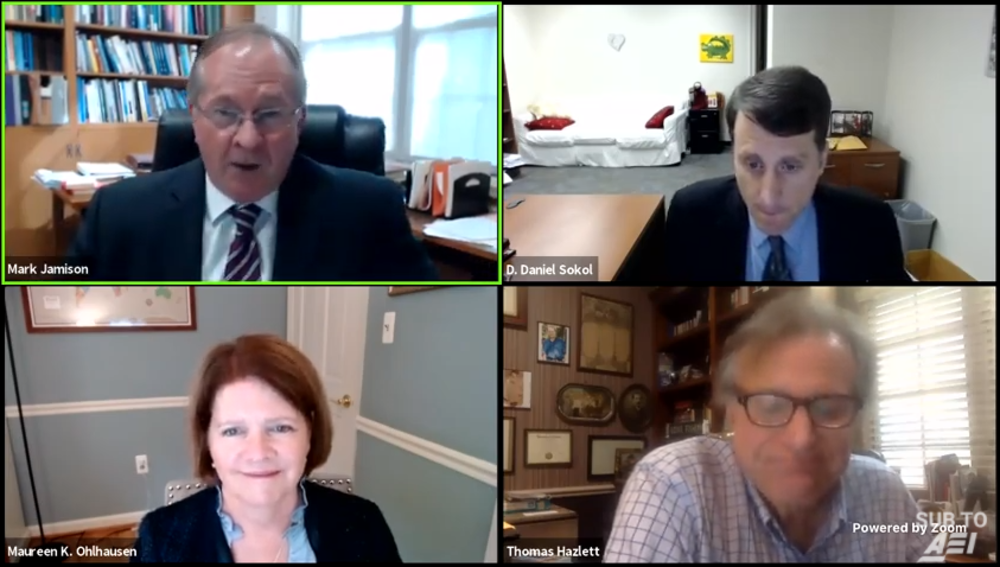Panel of Antitrust Experts Assembled by AEI Slams House Judiciary Antitrust Report as ‘Political’
October 30, 2020 — An American Enterprise Institute webinar on Monday criticized the House Judiciary Antitrust Committee’s recent report, calling it politically-motivated and criticizing it for lacking sources and transparency. “If you believe that there should be a much more politically motivated a










Member discussion